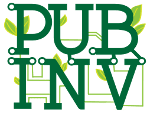Public Invention’s motto is “Invent in the public, for the Public.” Inventing in the public means working “in the light”—letting everyone see the work product as you go along. In a sense, working in the light is a form of mentoring that is available to all for free.
But people need one-on-one, personal mentoring as well. I learned so much from my personal mentors and other influential people in my life (some of whom probably wouldn’t remember me) that I personally feel it is a universal duty for each of us to mentor whenever we can. Here is what I try to do.
The best mentorship is collaboration. The most lasting insights I ever got were from watching my father solve a computer programming problem. He offered no advice; he just solved the problem out loud with me looking on. In fact, he reconstructed Bresenham’s line drawing algorithm, I’m pretty sure without ever having seen it, from first principles, writing neatly on a sheet of graph paper. We programmed it in assembly language on my TRS-80. It could draw lines across the screen so fast you couldn’t see them move. In 1979 on that computer, that was a big deal.
My second mentor, Dr. Martin L. Smith, worked closely with me on certain problems in geophysics and then closely guided my reverse engineering of Hypercard for the Sun Windowing system in 1987. This was better than any mottoes he could have produced. We wrote a paper together, and in that way he demystified academic publishing for me.
I had the pleasure of coding for an hour with Kent Beck. It was a very informative hour, even though we did nothing that he hadn’t already written about in a book that I had already read.
I try to work directly with people as colleagues whenever possible. Sometimes this can be done in near equality; for example, a recent volunteer, Lauria Clarke, was a better PCB designer than I was, and on that project we could be equals. In other cases, particularly when it involves pure computer programming, I am so far ahead of a student that there is no point in pretending we are equals. In these cases the teaching is asymmetric, but it is still focused around collaboration: we are getting something done together, and if I may be doing most of the typing and coding, we are still doing it together.
Occasionally young people appeal to me for career advice in various ways. I am of course honored by this, but approach it with great humility. I have only lived one life and I’m not at all sure that I’ve done it successfully, so I can’t tell anyone what to do. But I can share a lot of experience that may be relevant. The mentor must always be humble.
Young people are inexperienced. They may miss major opportunities because they simply know nothing about a possibility. You may greatly help young people by sharing such experiences, and allowing them to take what they can from it. For example, I went to college, failed disastrously to be a physics major, and then succeeded in computer science. I went to graduate school and had some dismal experiences, though I eventually graduated, and am glad I did. I share failures and successes in equal proportion, because for most of us, that is what life is.
I try to be upfront about my biases. For example, if someone is trying to decide if they should go to college or graduate school, I tell them before we start talking that I will likely always say “yes, you should.” With that out of the way I try to listen with an open mind.
My face doesn’t show it, but I am a deeply enthusiastic person. This level of intense enthusiasm and optimism can, I’m sure, be off-putting at times. It is sometimes nice to have someone telling you that you can do anything, that no endeavor is beyond your reach. That is what my heart says. It is not always true.
But it is true that trying and failing is almost always better than not trying. I know this from experience; it is a percept, not a concept. Efforts often fail to produce their goals, but they rarely fail to produce some unlooked-for result that falls into your lap like magic. Perhaps my greatest mentor of all, my grandfather, taught me a little homespun wisdom. Like all wisdom it is simple on the surface, but surprisingly deep. “You can’t catch a fish if your hook ain’t wet.” It means taking an action is more important than talking about the action. You can’t win if you don’t play.
In the end, I can do neither more nor less than share the light that has been shared with me.
